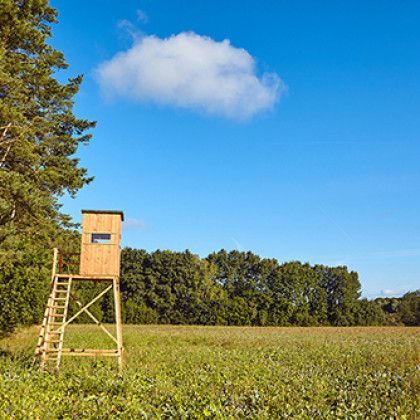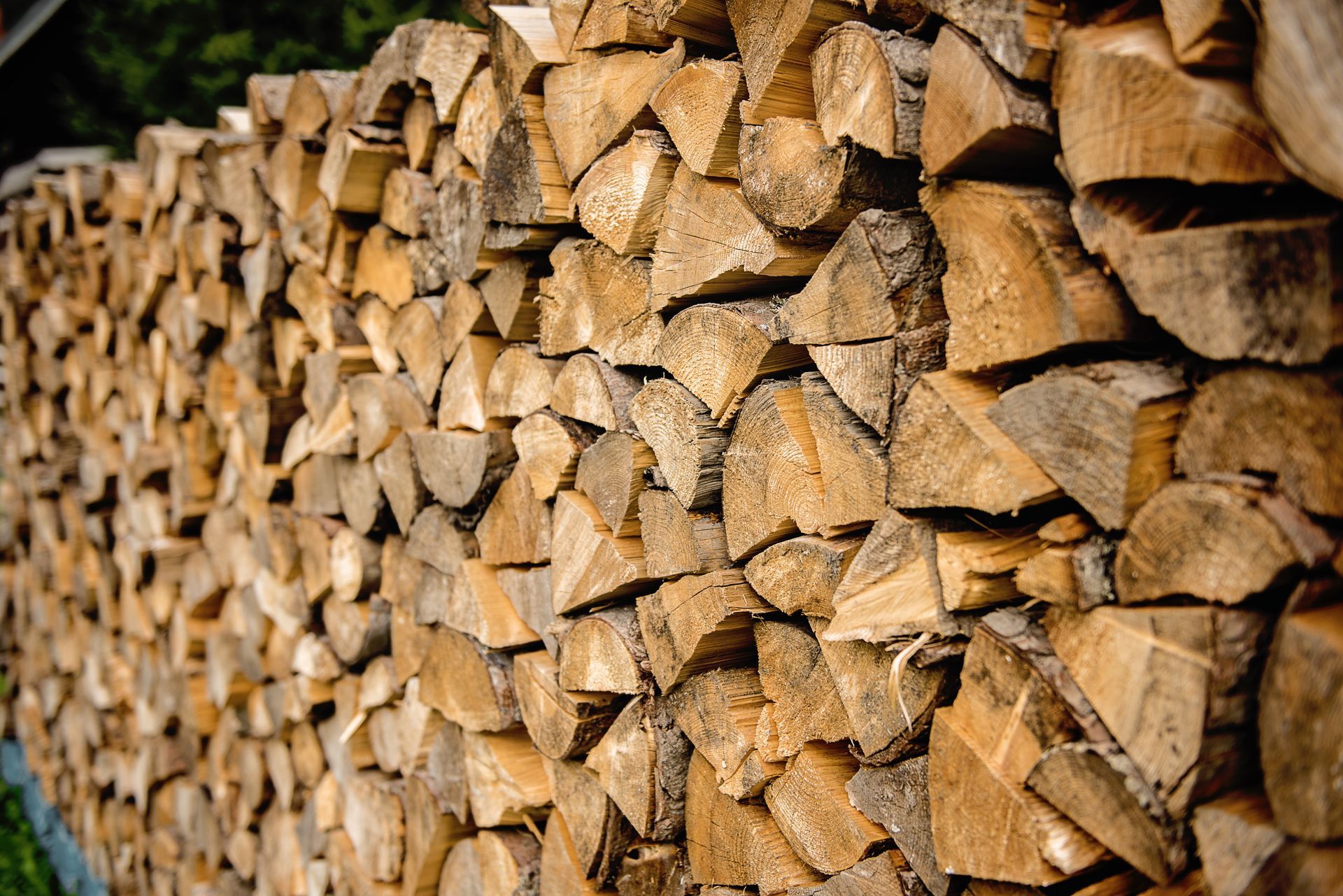Choosing the Right Wood for Your Project
When embarking on any woodworking project, the choice of wood can significantly influence the final outcome. Whether you're crafting furniture, building a deck, or creating intricate carvings, understanding the characteristics and suitability of different wood types is crucial. At
Potterville Sawmill, located in Charlotte, MI, we provide high-quality wood tailored to meet your project needs. In this blog post, we'll guide you through the process of selecting the right wood, ensuring your project is a resounding success.
City skyline
Understanding Wood Types
Before diving into the specifics of wood selection, it's essential to understand the two main categories of wood: hardwood and softwood.
- Hardwood: Derived from deciduous trees, hardwoods are known for their density, durability, and often rich grain patterns. Oak, maple, cherry, and walnut are frequently used hardwoods. These woods are ideal for furniture, flooring, and cabinetry.
- Softwood: Sourced from coniferous trees, softwoods are generally lighter and more flexible than hardwoods. Examples include pine, cedar, spruce, and fir. Softwoods are often used in building, framing, and outdoor applications.
Choosing between hardwood and softwood depends on your project's requirements. For instance, hardwoods are preferable for projects demanding longevity and aesthetic appeal, while softwoods are suitable for structural and cost-effective solutions.
Assessing Wood Characteristics
Each wood type possesses unique characteristics that can affect its performance and appearance in your project. Here are some critical factors to consider:
- Grain and Texture: The grain pattern and texture contribute significantly to the wood's visual appeal. Open-grain woods like oak and ash have prominent grain lines, adding a rustic charm, while closed-grain woods like maple and cherry offer a smoother, more refined look.
- Color and Finish: Different woods have varying natural colors, which can be enhanced or altered with stains and finishes. For example, walnut has a rich, dark hue, while pine is lighter and can take on various shades with appropriate finishing.
- Workability: There are woods that are easier to work with than others. Softwoods like pine are relatively easy to cut, shape, and join, making them ideal for beginners. Hardwoods like oak and maple, while more challenging to work with, reward skilled craftsmen with exceptional results.
- Durability and Resistance: Consider the wood's resistance to wear, moisture, and pests, especially for outdoor projects. Cedar and redwood are naturally resistant to rot and insects, making them excellent choices for decking and exterior structures.
Matching Wood to Your Project
Selecting the right wood involves matching its properties to the specific demands of your project. Here are some common projects and suitable wood choices:
- Furniture: For high-quality furniture, hardwoods like oak, cherry, and walnut are ideal. They are long-lasting, attractive, and classic. Maple is also a great choice for its fine grain and versatility.
- Decking: Outdoor projects require wood that can withstand the elements. Cedar and redwood are often chosen because they naturally resist rot and pests. Pressure-treated pine is another cost-effective option, offering durability and resistance to moisture.
- Flooring: Hardwood flooring adds elegance and longevity to your home. Oak is a top choice for its hardness and attractive grain. Maple and hickory are also excellent options, providing durability and a variety of grain patterns.
- Cabinetry: For cabinets, consider hardwoods like cherry, maple, and birch. These woods offer a smooth finish and can be stained to match your desired aesthetic. Plywood is also commonly used for cabinet boxes due to its stability and cost-effectiveness.
Sustainable Wood Choices
At Potterville Sawmill, we are committed to sustainability and responsible forestry practices. Choosing sustainable wood not only helps preserve our forests but also ensures the long-term availability of high-quality materials. Here are some tips for making eco-friendly wood choices:
- Certified Wood: Look for wood certified by organizations like the Forest Stewardship Council (FSC). FSC-certified wood comes from responsibly managed forests that meet stringent environmental and social standards.
- Reclaimed Wood: Reclaimed wood is salvaged from old structures, giving it a second life in new projects. This option reduces waste and adds unique character to your creations.
- Local Wood: Opting for locally sourced wood reduces the carbon footprint associated with transportation. At Potterville Sawmill, we offer a range of locally harvested wood, ensuring quality and sustainability.
Tips for Proper Wood Storage and Handling
Proper storage and handling of wood are crucial to maintaining its quality and ensuring your project's success. Here are some best practices:
- Moisture Control: Wood can expand or contract with changes in moisture levels. Store your wood in a dry, well-ventilated area to prevent warping and cracking. Using a moisture meter can help you monitor the wood's moisture content.
- Stacking and Spacing: When storing wood, stack it flat with spacers between the boards to allow air circulation. This helps prevent mold growth and ensures even drying.
- Acclimatization: Before using the wood, let it acclimate to the environment where it will be installed. This minimizes the risk of movement after installation.
- Protection: Cover your wood to protect it from dust, dirt, and physical damage. Use tarps or plastic sheeting for outdoor storage and consider a climate-controlled space for valuable or sensitive wood types.
Contact Potterville Sawmill Today!
Ready to start your woodworking project? At Potterville Sawmill, we're dedicated to providing high-quality wood and expert guidance for all your woodworking projects. Our experienced team can help you select the perfect wood, ensuring your project meets your expectations in terms of beauty, durability, and sustainability.
Contact Potterville Sawmill at (517) 231-7436 or visit us in Charlotte, MI. Our knowledgeable staff is here to assist you with all your wood selection and supply needs. Realize your vision with our premium wood and expert service.
Check out our
shop to know the types of wood we offer. We also build
rough-sawn sheds,
deer blinds, and more!
FAQs
How do hardwood and softwood differ?
Hardwood comes from deciduous trees and is typically denser and more durable, making it ideal for furniture and flooring. Softwood comes from coniferous trees and is lighter and more flexible, suitable for construction and outdoor projects.
How do I choose the right wood for outdoor projects?
For outdoor projects, select wood that is naturally resistant to moisture and insects, such as cedar and redwood. Pressure-treated pine is also a durable and cost-effective option.
What is reclaimed wood, and why should I consider using it?
Reclaimed wood is repurposed material salvaged from old buildings. It reduces waste, adds unique character, and supports sustainability by giving wood a second life.
How should I store wood to prevent warping and cracking?
Store wood in a dry, well-ventilated area with spacers between the boards to allow air circulation. Keep it covered to protect from dust and damage, and let it acclimate to the environment before use.
Can you help me with wood selection for my specific project?
Absolutely! At Potterville Sawmill, our experienced team is ready to assist you in choosing the best wood for your project. Contact us at (517) 231-7436 for personalized advice and high-quality wood supplies.
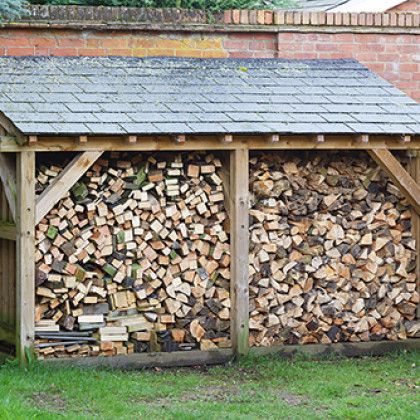
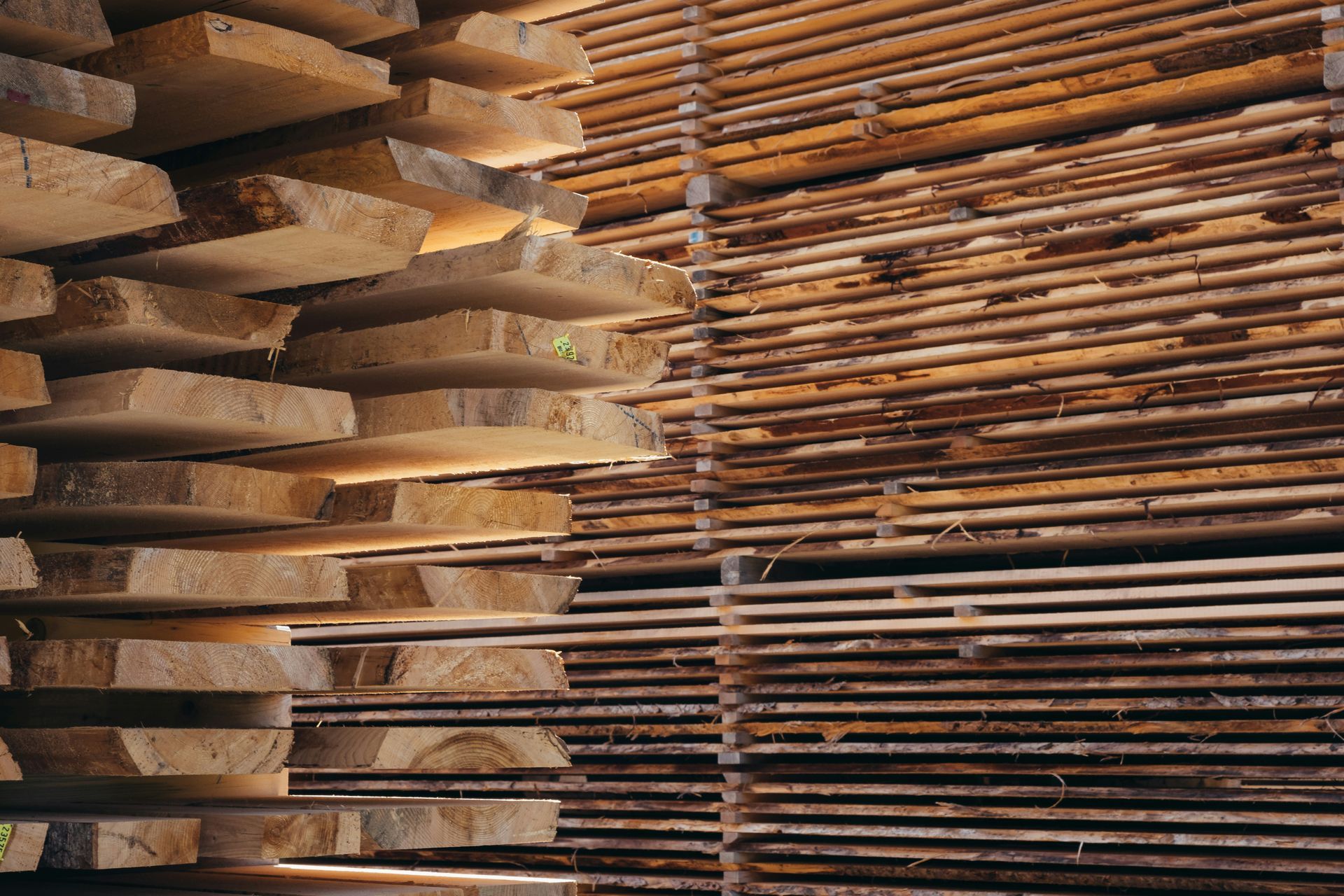
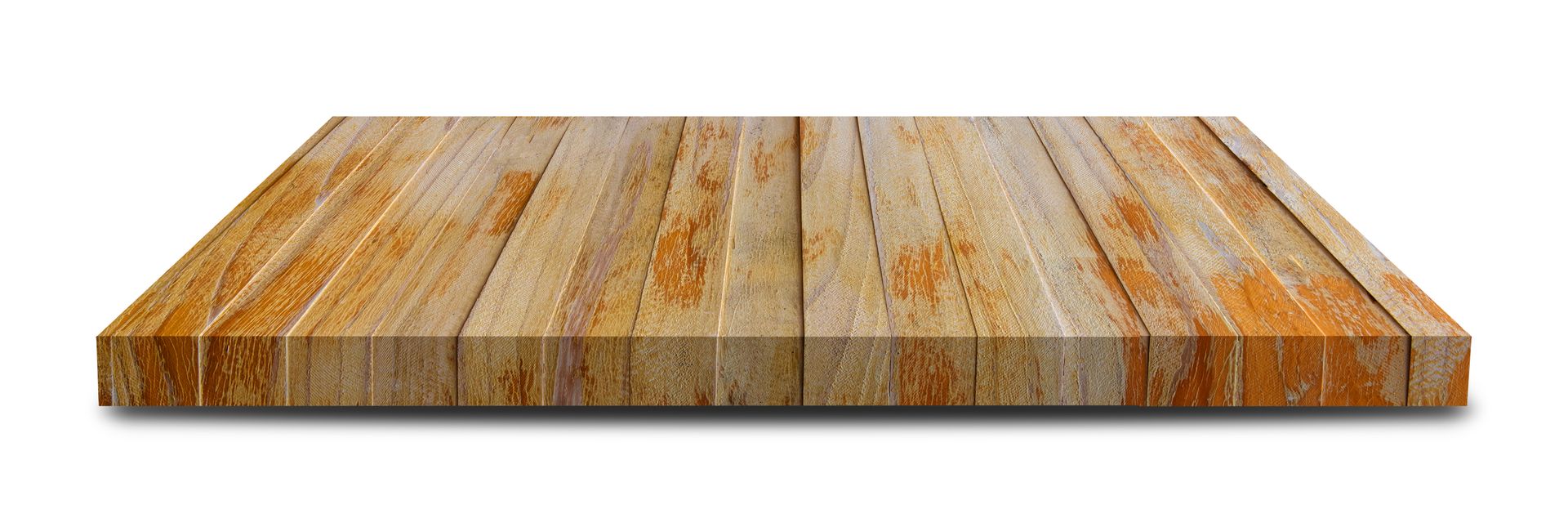
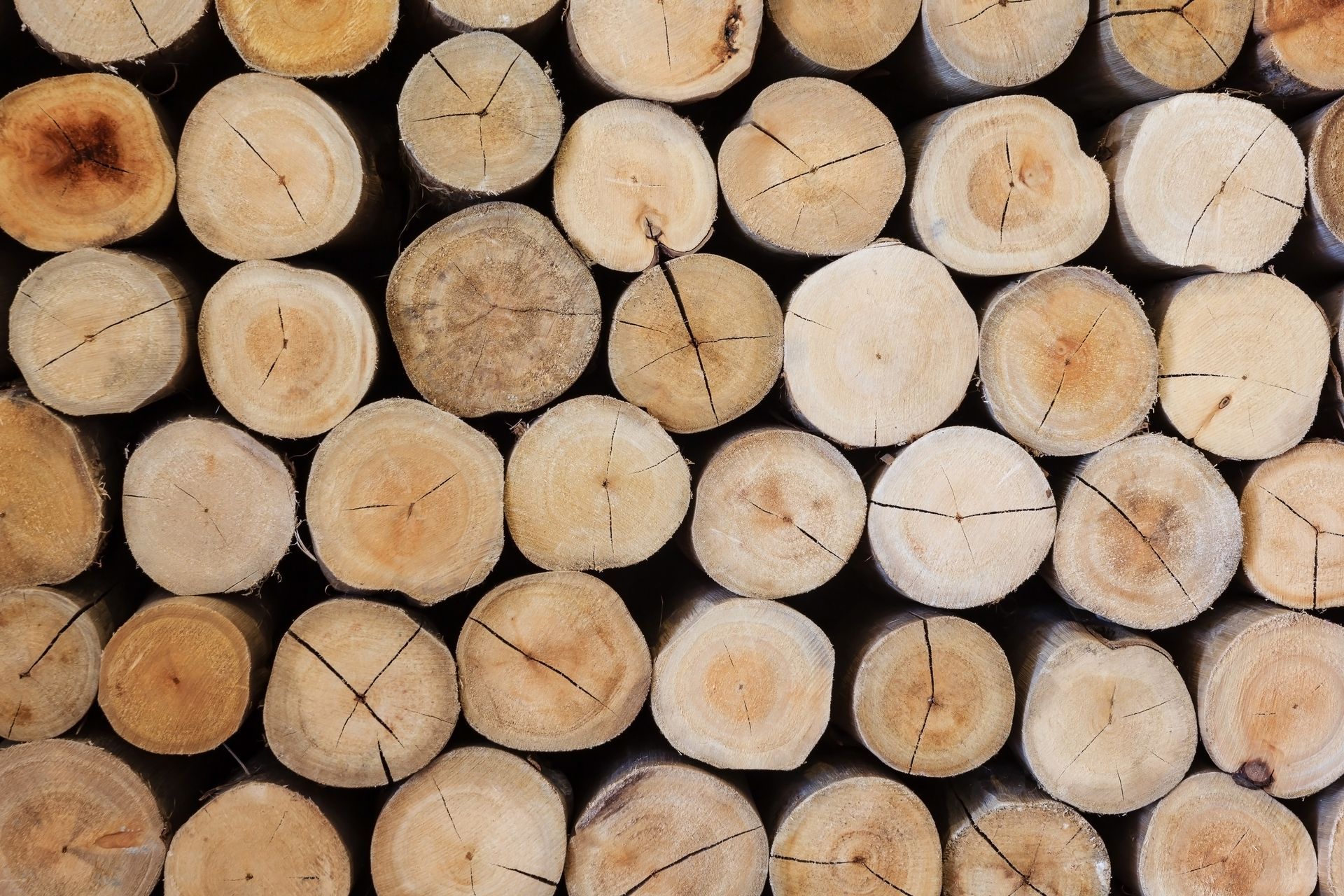
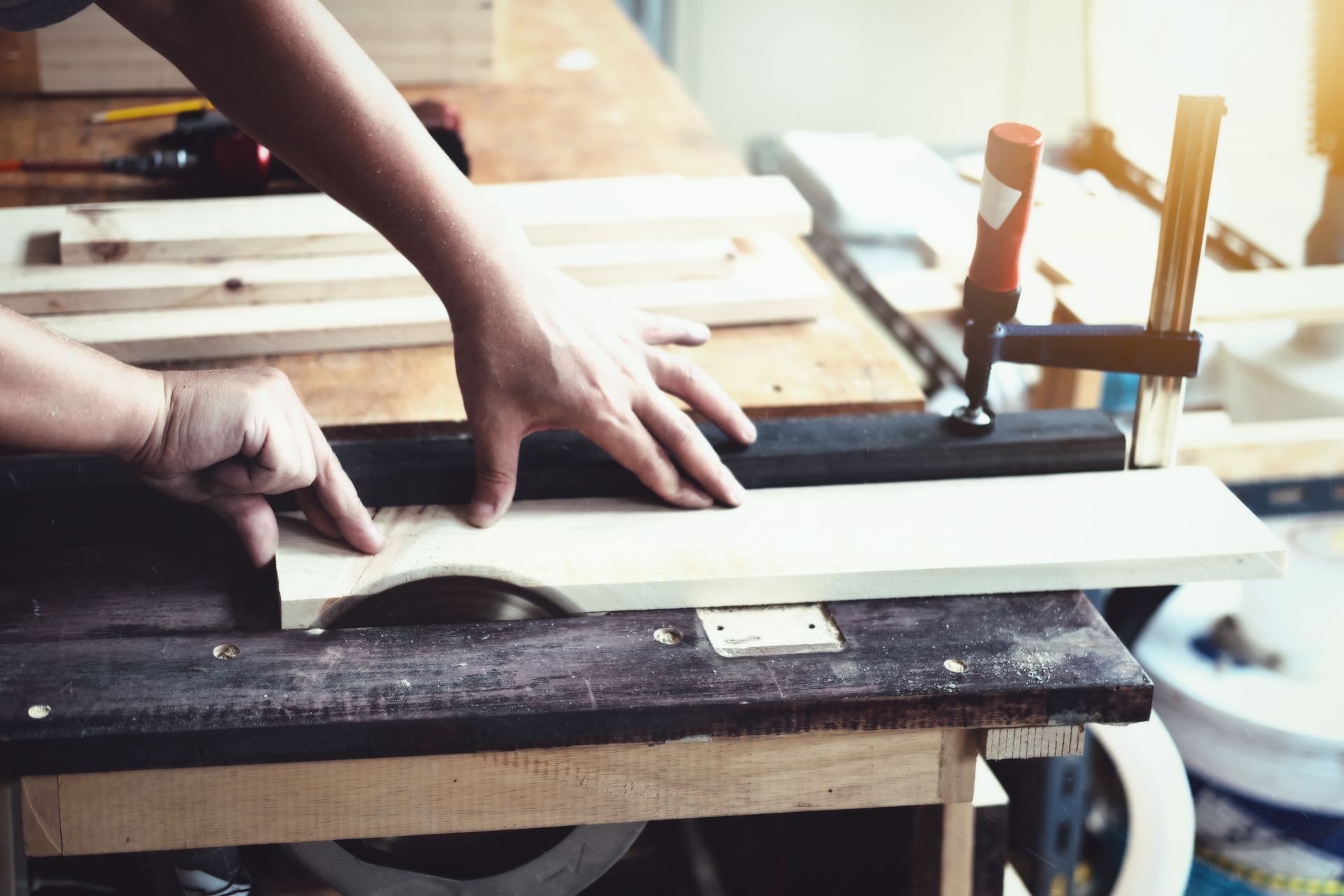
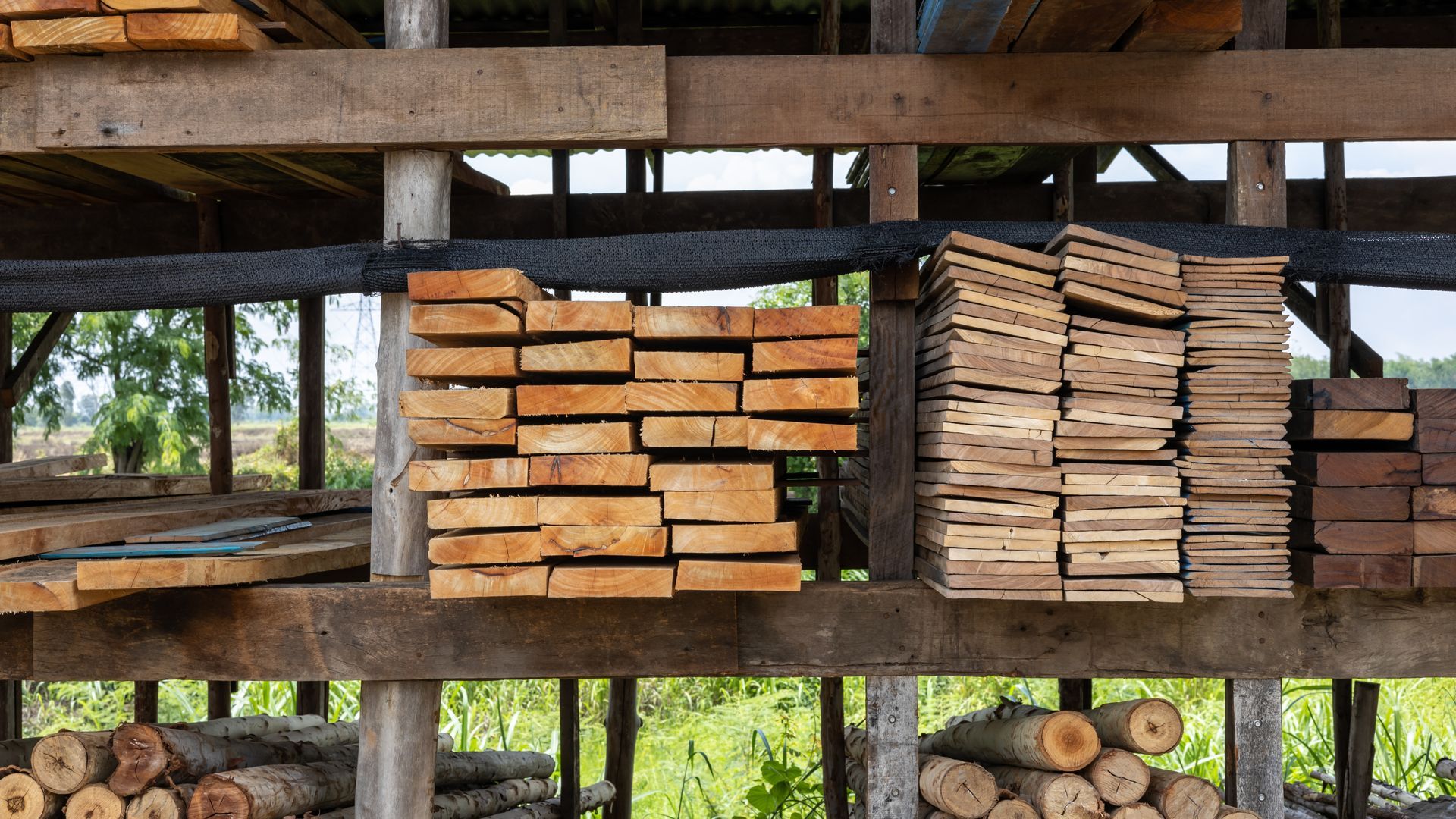
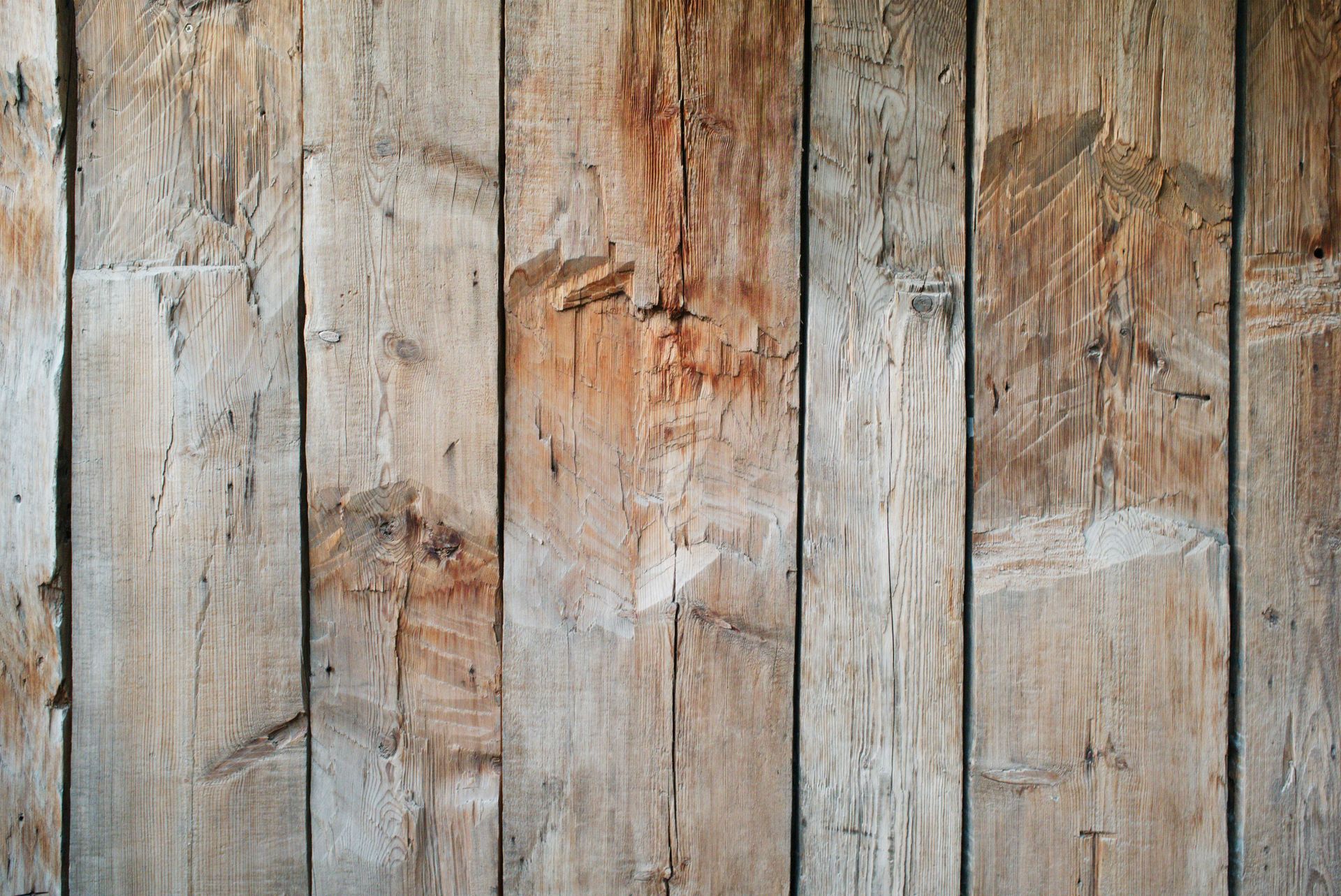

Copyright © 2024
Potterville Sawmill, LLC, All Rights Reserved.

